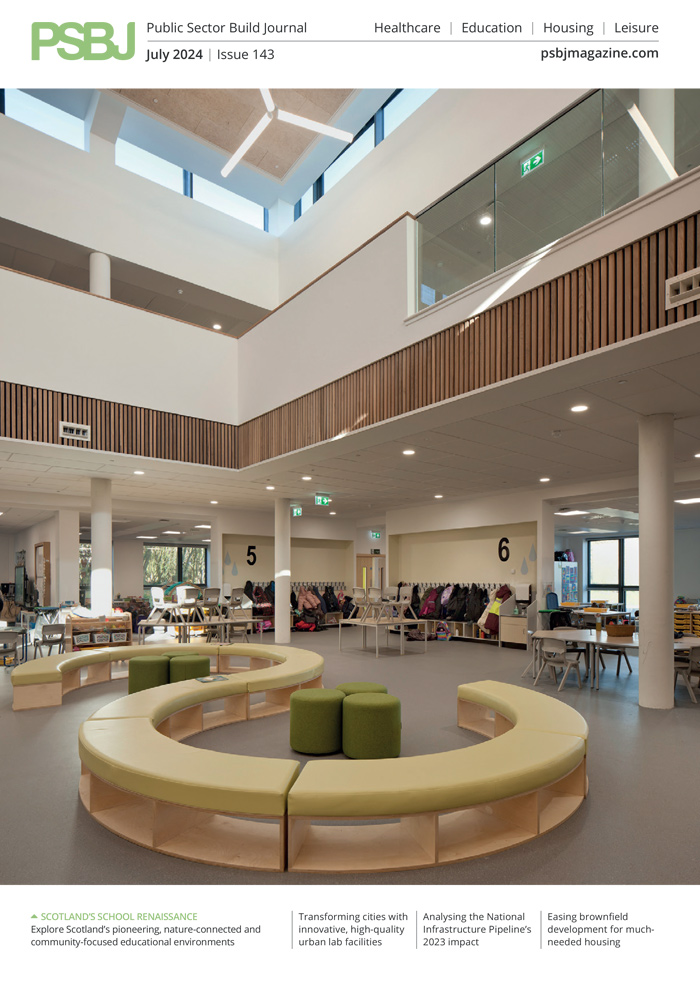With the 2030 deadline of reducing carbon emissions by 45% quickly approaching, every industry feels the pressure to transition to greener ways of working. Building and architectural product manufacturers are no exception.
Optima
The world is competing for increasingly scarce resources and it’s obvious the longstanding, and misguided, attitude of “use once and discard” is no longer sustainable.
Carbon offsetting is a step in the right direction but is a short-term solution with questionable environmental benefits, if done in isolation and not as an extension of an organisations environmental work. Manufacturers must instead develop new solutions to directly decarbonise materials and processes, as well as concentrating on the reuse of their products, reintegrating them into the supply chain at the end of their lifespans.
Now, it’s clear that some industries will take longer than others to transition to carbon-free alternatives. For example, we realise that it will take aluminium-framed glass partition manufacturers, such as ourselves, longer than, say, timber companies to reach net zero goals.
However, we’re acutely aware it’s not a choice to make the green shift. It’s an imperative.
The rise of greenwashing
The demand to offer green products compels many manufacturers to make misleading sustainability claims.
Recycled content is the biggest trend in greenwashing today. There’s been much talk about certain products made with up to 70% recycled content. But this 70% doesn’t tell the full story as there needs to be transparency regarding the source of this content. Is it pre-consumer, which has far more limited benefit that post-consumer content.
There’s a significant distinction in the definition of these two terms, and it makes a massive difference to the embodied carbon within the product.
Pre-consumer content is manufacturer waste that never actually made it to the consumer: scraps, rejects, trimmings. It’s the materials that end up on the factory floor, repurposed into something new. Thus, it’s not recycled at all but yet included in the calculation.
Transparency and sustainability throughout the supply chain
To get to where we need to be, the environment must be at the centre of all conversations for building product manufacturers. Transparency is essential, labelling with accurate environmental product declarations might be the vehicle for this, allowing consumers to measure like with like.
Going green is also a question about doing more with less, ensuring products work harder and last longer. This is a broader issue for all goods. For example, there are 5 billion mobile phones sitting redundant in people’s homes that are not recycled. Therefore, the semiconductors, plastics and precious metals within, are not getting back into the supply chain.
This relates back to commercial construction sector concerns: Is it necessary to throw away partitioning systems and buy new every time our office lease expires? Put simply the answer is no. We’ve been helping our clients to reuse their systems for many years but only recently has this become part of the environmental agenda.
In response, Optima is looking at sustainability throughout our whole supply chain, shifting processes to favour greener materials and taking purposeful steps toward our carbon neutrality objectives without sacrificing product quality. We strongly believe in circular manufacturing principles, with reuse and recyclability of our products a core priority.
Where do we go from here?
There is a lot that building product manufacturers need to consider to operate sustainably, moving toward net zero without delivering false claims. Perhaps in the future, the construction industry could standardise sizes for items such as doors and glass partitions, ensuring reuse in future builds.
As an industry, we can do this. We just need a level playing field, which we can achieve through transparency and employing a long-term approach rather than falling back on easy, but ineffective, temporary solutions.
Remember, it’s not a choice for companies to go green. It’s essential. And changes must be made today, not tomorrow, to achieve carbon neutrality goals, meet increasing customer demand for sustainable products and support our planet’s wellbeing.
Christian Mabey,
Managing Director, Optima Products






